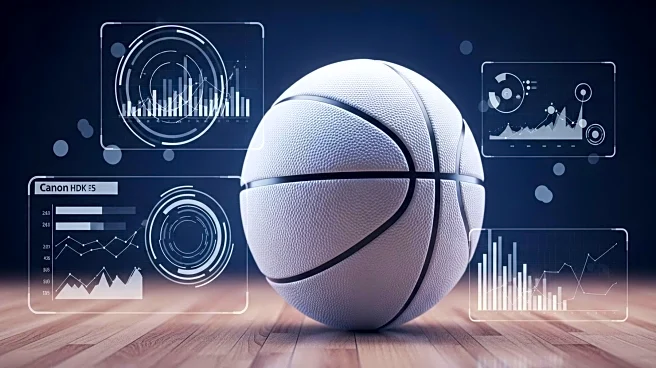What's Happening?
Basketball analytics have evolved beyond traditional statistics like points and rebounds, incorporating advanced metrics such as player ratings and win shares. This shift has transformed how fans and analysts predict game outcomes, moving from intuition-based predictions to data-driven models. The accessibility of these statistics through digital platforms has democratized basketball analysis, allowing fans to engage in deeper discussions and predictions. The NBA's release of extensive team and player data further supports this trend, enabling fans to form more informed opinions about player effectiveness and team tactics.
Why It's Important?
The integration of advanced analytics into basketball culture has significant implications for fan engagement and the sport's commercial aspects. As fans become more knowledgeable about statistical models, their engagement with the sport deepens, potentially increasing viewership and participation in fantasy leagues. This trend also influences betting markets, where predictive models are used to forecast game outcomes, impacting how fans place wagers. The shift towards data-driven analysis reflects broader changes in sports consumption, where fans seek more sophisticated insights into game dynamics.
What's Next?
As the use of analytics continues to grow, fans and analysts may develop even more sophisticated models to predict game outcomes. The NBA's ongoing release of data will likely enhance these efforts, providing more granular insights into player and team performance. This could lead to increased competition in fantasy leagues and betting markets, as participants leverage advanced statistics to gain an edge. Additionally, the continued evolution of analytics may influence coaching strategies and player development, as teams seek to optimize performance based on data-driven insights.
Beyond the Headlines
The rise of basketball analytics raises ethical and cultural questions about the role of data in sports. While analytics provide valuable insights, they may also overshadow traditional aspects of the game, such as teamwork and individual skill. The emphasis on data-driven predictions could lead to a homogenization of playing styles, as teams prioritize efficiency over creativity. Furthermore, the reliance on analytics may impact player evaluations, potentially undervaluing those who excel in intangible areas not captured by statistics.










